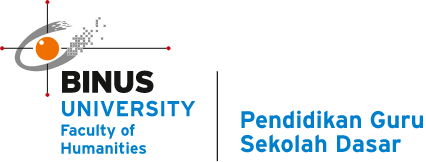BINUS UNIVERSITY IS PREPARING TO FUTURE LEARNING ENVIRONMENT
Oleh:
Ubaidah
The recently and widely touted Industrial Revolution 4.0 (IR 4.0) is expected to impact many aspects of our life including how we work, how we learn, how we produce, how we consume, even how we move around. As such, many sectors start to develop strategy to adapt to these changes. In higher education sector, the IR 4.0 is becoming a general aim in strategizing many aspects of higher education such as curriculum, pedagogy approach, assessment and student outcomes. The IR 4.0 also impacts the nature of disciplines profoundly ranging from economy, engineering, information technology, health science and even education itself. The higher education institutions should respond to these changes strategically and in holistic manner since higher education can be considered as the last shelter in the formal education ladder which is supposed to develop human resources capable for contributing to social and technological progress, increasingly complex problem solving and general quality of life in society.
Gleason (2018) predicted that the impact of IR 4.0 includes highly dynamic employment sectors brought about by the intervention and inclusion of artificial intelligence (AI) in industry. This will require a fundamental change employability skill to support the new requirements of the industry. Apparently, higher education should envision to prepare students who are able to apply their knowledge, skills and competences in multi-disciplinary way to anticipate the dynamics of the employment.
Complementarily, liberal arts education is becoming crucial since IR 4.0 demands individuals who can develop their cognitive flexibility and life-long learning (Lewis, 2018). Such requirements must be considered by higher education and in fact, the IR 4.0 has been inducing a revolution in higher education to address the emerging needs and requirements.
Binus University is fully aware of such changes and has stipulated that the newly formulated strategic pedagogy approach at university level shall facilitate the new way of learning which will lead to the development of the new competences required by IR 4.0. The new pedagogy strategy includes personalized learning and mobility (network learning) which are also enabled by digital learning. Binus Digital has been envisioned to integrate the Binus-way of new learning in the context of IR 4.0 which leverage the institutional capacity in IT and learning.
All the changes, requirements and consequences of IR 4.0 seem to impact the dimensions of institutional settings, institutional structures and general aims of higher education institutions. Another critical dimension is whether the IR 4.0 will bring new consequences on student learning. The nature of student learning in the near future has been the subject of many recent researches. The rapid proliferation of digital technology in the connected world has open many new possibilities in knowledge production, consumption and distribution which leads to the changes of learning. Recent research show that in such situation, network learning must be taken into account in addition of individual and group learning (Ketunnen, 2011). Personalization, collaboration and informalization will be at the core of learning in the future (Redecker et.al, 2011).
The use of digital technology as a learning management system (LMS) has been a common practice for decades. At Binus University, an LMS called BinusMaya was custom-developed and has been utilized since 2001. BinusMaya is not only an implementation of an LMS for day to day learning management, but it also embodies the operationalization of the strategic pedagogy approach at university level. Such function of an LMS is clearly demonstrated when BinusMaya was utilized to implement MCL (Multi Channel Learning) in 2006, in which the face to face learning was combined with online learning through forum, online resources and online assessment (Prabowo, 2006). Several studies (Karjo, 2011; Darudianto and Wibowo, 2013) indicate that BinusMaya has enabled MCL successfully.
With the imminent changes in higher education practices and in the nature of the student learning, a new strategic pedagogy approach at university level needs to be envisioned and implemented in order to facilitate the personalization, collaboration and informalization in the student learning. A new model of curriculum called 2+1+1 has been mandated in 2018 to be fully in operation in 2020. This new curriculum model essentially embodies the necessary characteristics of student learning in the future, i.e. personalized learning and mobility. An enabling framework called Binus Digital will integrate the strategic pedagogy approach and the practical learning delivery through a digital technology platform. As such, a convergence between traditional learning and online learning can expectedly take place in the next decade, blurring the boundary between those two modes of learning.
A proper change management will be required to navigate safely in this profound changes of the pedagogy strategy and practices. As the implementation of the university pedagogy strategy, BinusMaya will inevitably necessitate adaptation to capture the required changes. Such adaptation requires a study to evaluate the current practices and to anticipate the future utilization. This study can contribute to identifying how well BinusMaya has operationalized the current pedagogy practice (MCL) and identifying what features of LMS that can facilitate the characteristics of student learning in the future within the institutional constraints of Binus University.

Comments :